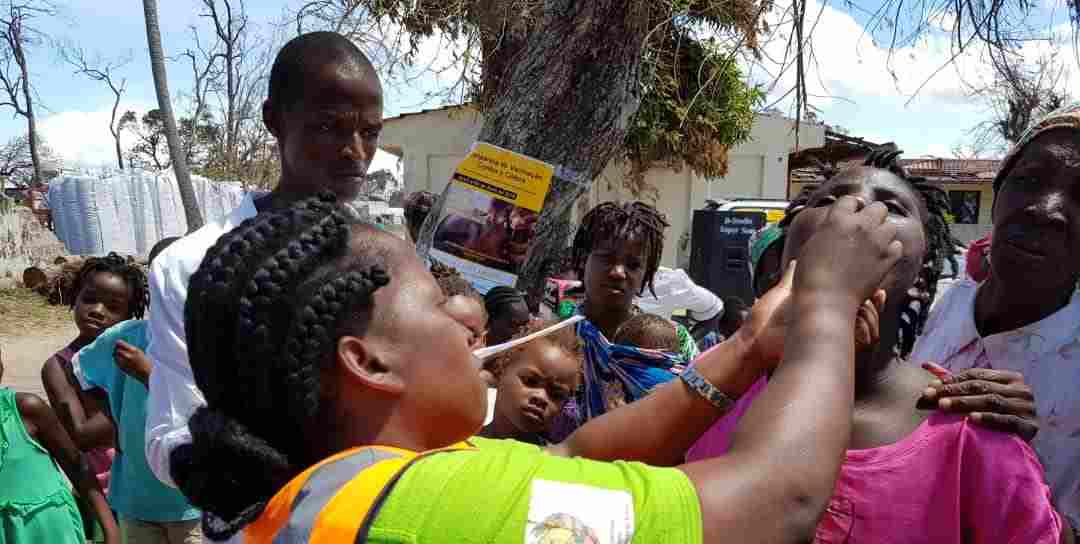Mozambique is battling a significant cholera outbreak that has escalated in the aftermath of Cyclone Freddy, which devastated the city of Quelimane in recent weeks. The United Nations Children’s Fund (UNICEF) has reported around 10,000 cases of cholera in Mozambique as of March 18th, marking a sharp increase since the start of February.
In response, Mozambique’s health sector has launched a large-scale cholera immunization initiative in Quelimane to decrease the soaring number of cases. The two-week immunization campaign aims to vaccinate all residents of the city in an effort to stem the spread of the highly contagious disease.
The vaccination program is being organized by Mozambique’s health sector and is focused on the city of Quelimane. The city has been severely impacted by Cyclone Freddy, which brought destruction and caused the death of 19 people. Additionally, it left 50,000 citizens homeless and forced them to take refuge in temporary shelters.
Blayton Caetano, the director of health for Zambezia province, declared on Tuesday to state radio that the two-week immunization campaign aims to decrease the soaring amount of cholera incidents occurring after the unprecedented storm. Caetano has announced that they are prepared to commence the vaccination campaign in the near future, and that all citizens of the city will receive vaccinations for safety.
The criteria for vaccination is that all residents, including those present in the room, will be inoculated, with the aim of seeing a decrease in cholera cases within a period of two weeks.
On Tuesday, the UNICEF organization presented Mozambique with 1.7 million doses of a cholera vaccine to embark on a vaccination campaign. The latest batch of doses has been allocated for Quelimane in Zambezia, Chimoio in Manica, and Beira and Marromeu in Sofala.
The city of Quelimane has seen a substantial rise in cases, which is a result of the flooding and the destruction of the water system by Cyclone Freddy. In recent times, thousands of Quelimane inhabitants have been searching for other water sources by travelling in cars or on foot, with buckets and other storage containers, as tap water has become scarce. Officials in the health sector have cautioned that the supply of water purifiers is dwindling and recommend that those in a position to do so purchase the item from individuals on the market rather than relying on free distribution.
The vaccination campaign comes after UNICEF released a statement on March 18th, stating that around 10,000 cases of cholera had been reported in Mozambique, marking a sharp increase since the start of February. This outbreak comes at a time when Mozambique is already dealing with the impact of the COVID-19 pandemic, which has led to widespread economic hardship and limited access to healthcare.
Moreover, the country is simultaneously facing a humanitarian disaster in the north, where approximately 2 million people require help due to a conflict with an Islamist insurgency occurring there. The conflict has led to widespread displacement and food insecurity, and it is feared that the violence could escalate in the coming months.
The multiple crises facing Mozambique have led to a significant strain on the country’s resources and its ability to respond effectively to the various challenges. The vaccination campaign in Quelimane is just one part of a larger effort to address the cholera outbreak and improve the overall health situation in the country.
It is crucial for international organizations and governments to provide support to Mozambique during this challenging time. The country needs assistance in managing the cholera outbreak, responding to the humanitarian crisis in the north, and recovering from the economic impact of the pandemic and Cyclone Freddy.
The vaccination campaign launched in Quelimane is a critical step in the fight against the cholera outbreak in Mozambique. It is essential that the government and international organizations continue to work together to address the multiple crises facing the country and ensure that the health and well-being of Mozambique’s citizens are protected.
Image Credit: WHO




